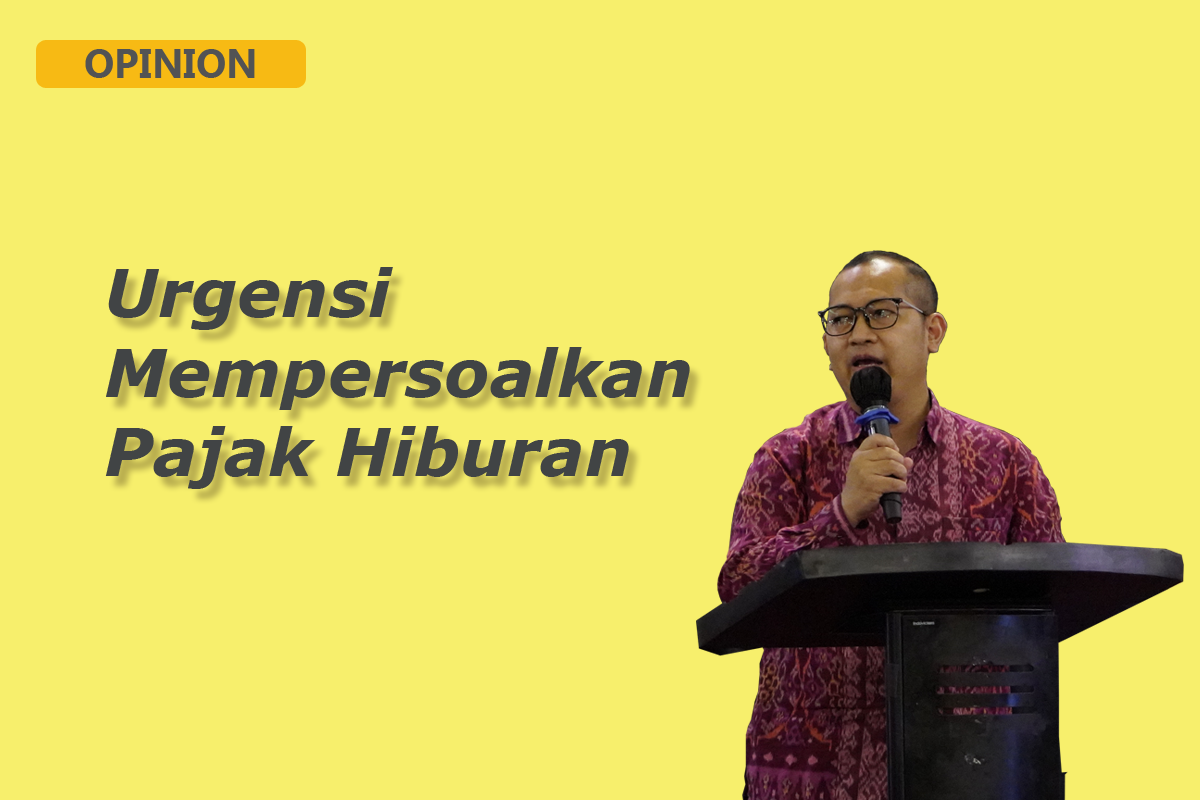The Urgency to Question Entertainment Tax
By: Ferry Irawan
|
Tuesday, 23 January 2024

For more than two decades, Indonesia has embraced a decentralized government system, both politically and fiscally. However, so far, fiscal decentralization has been synonymous with the authority of local governments to manage spending in their regions.
With the issuance of Law (UU) Number 1 of 2022 on Financial Relations between the Central Government and Regional Governments (HKPD Law), local governments are also given wider authority in optimizing their revenue sources.
The regulation replaces the previous regulation, Law Number 18 of 1997 on Regional Taxes and Retributions (PDRD Law).
The HKPD Law actually comes into force on 5 January 2022, however, local governments are given two years or no later than 5 January 2024 to prepare derivative regulations.
However, when some regions prepared derivative regulations, various parties began to question the existence of the HKPD Law. The main issue is the determination of tariffs for Specific Goods and Services Tax (PBJT). In particular, the tax on entertainment services in discotheques, karaoke, nightclubs, bars, and saunas/spas is set at a minimum of 4O% and a maximum of 75%.
The parties who question the regulation, consider that the tax rate to be too high. Thus, it burdens business continuity.
Indeed, if we compare it with the PDRD Law, the entertainment tax rate applicable in the HKPD Law is fairly high. This is because, in the PDRD Law, the entertainment tax rate is set at a maximum of 75% without any lower limit.
Two Sides of Interest
It is well known that tax has two main functions. First, is the budgeting function. Then the other function is as a tool to regulate.
In the context of budgeting, tax imposition is the government's effort to collect local revenue. This is in line with the original purpose of the HKPD Law as a way to strengthen the fiscal structure of local governments.
However, several things need to be considered before the government sets the local tax rate. If the tax rate is too low, the direct impact on revenue will also be low.
However, if it is too high, the impact will be counterproductive to business activities that become tax objects. Thus, instead of boosting revenue, the imposition of local taxes actually suppresses business activities and has a negative impact on revenue.
Meanwhile, as a policy tool, the imposition of an entertainment tax can also be used as a means to control people's habits or behavior in consuming entertainment. The government has an interest in regulating people's behavior.
This is because it is closely related to the norms or ethics prevailing in a region. By imposing tax, it is expected that people will think twice about visiting or enjoying certain entertainment services. (ASP/KEN)
Disclaimer! This article is a personal opinion and does not reflect the policies of the institution where the author works.


